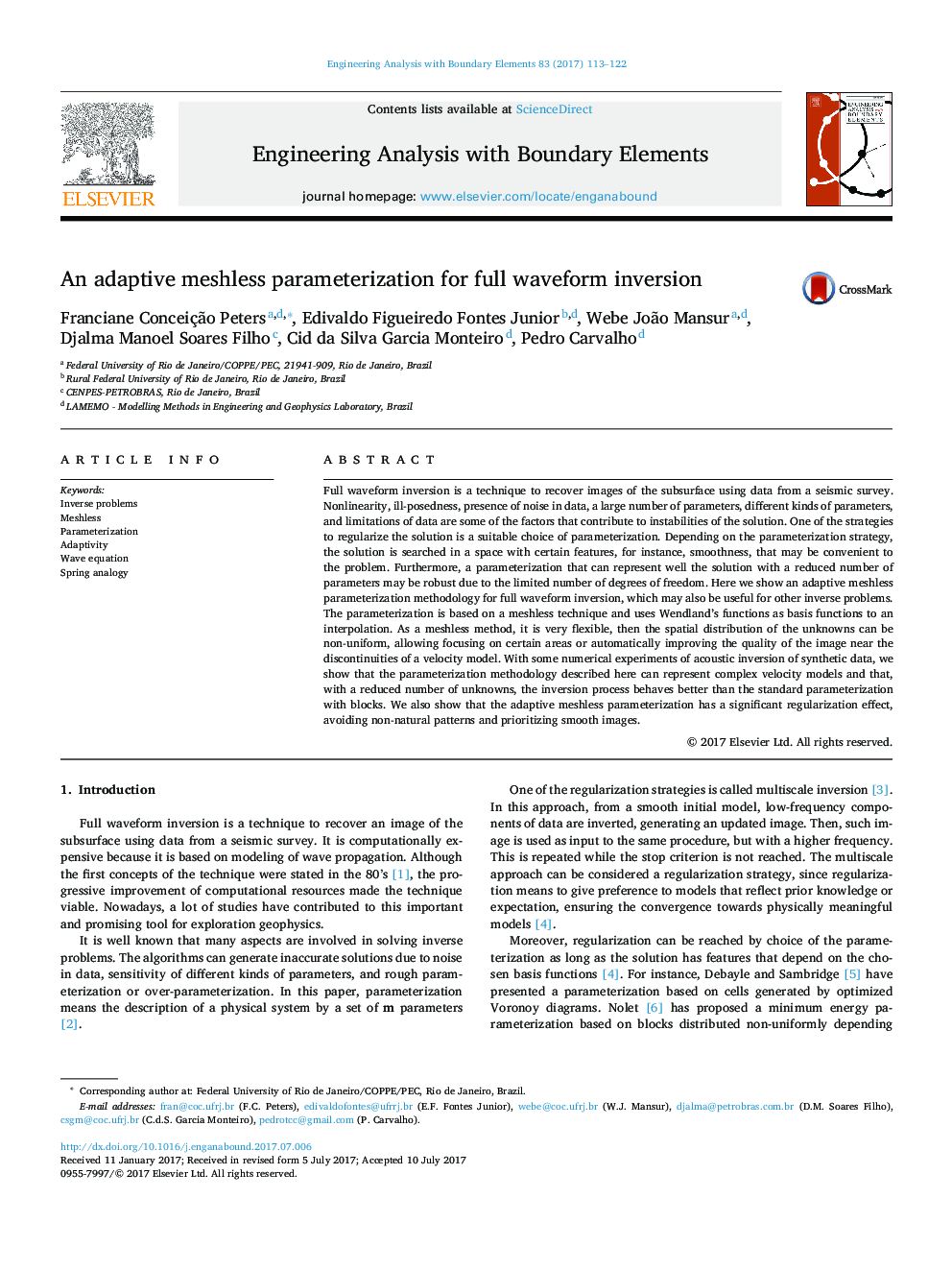| Article ID | Journal | Published Year | Pages | File Type |
|---|---|---|---|---|
| 4965972 | Engineering Analysis with Boundary Elements | 2017 | 10 Pages |
Abstract
Full waveform inversion is a technique to recover images of the subsurface using data from a seismic survey. Nonlinearity, ill-posedness, presence of noise in data, a large number of parameters, different kinds of parameters, and limitations of data are some of the factors that contribute to instabilities of the solution. One of the strategies to regularize the solution is a suitable choice of parameterization. Depending on the parameterization strategy, the solution is searched in a space with certain features, for instance, smoothness, that may be convenient to the problem. Furthermore, a parameterization that can represent well the solution with a reduced number of parameters may be robust due to the limited number of degrees of freedom. Here we show an adaptive meshless parameterization methodology for full waveform inversion, which may also be useful for other inverse problems. The parameterization is based on a meshless technique and uses Wendland's functions as basis functions to an interpolation. As a meshless method, it is very flexible, then the spatial distribution of the unknowns can be non-uniform, allowing focusing on certain areas or automatically improving the quality of the image near the discontinuities of a velocity model. With some numerical experiments of acoustic inversion of synthetic data, we show that the parameterization methodology described here can represent complex velocity models and that, with a reduced number of unknowns, the inversion process behaves better than the standard parameterization with blocks. We also show that the adaptive meshless parameterization has a significant regularization effect, avoiding non-natural patterns and prioritizing smooth images.
Related Topics
Physical Sciences and Engineering
Computer Science
Computer Science Applications
Authors
Franciane Conceição Peters, Edivaldo Figueiredo Fontes Junior, Webe João Mansur, Djalma Manoel Soares Filho, Cid da Silva Garcia Monteiro, Pedro Carvalho,
